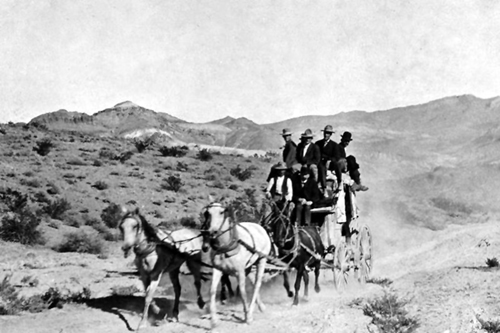Yep, it’s true. He is by every definition of the word, a civilian contractor and he is a Medal of Honor recipient. Matter of fact, he, along with several other famous wild west legends were contractors as well. Men like Robert Denbow, David L. Payne, and Wild Bill Hickok were all civilian Scouts hired by the US Army to hunt and kill Indians during that long war for the west. Not to mention the hundreds of Indians hired by the US Army to be Scouts.
What they paid these guys back then was interesting too. Cody was getting paid I believe 5 dollars a day, versus 12 dollars a month for the enlisted man in the Army. (sound familiar?) In essence, Cody and the rest of the mountain men Scouts employed by the US Army were well compensated and highly valued contractors back in the day. I am not sure how much they paid the Indian Scouts, but I am sure they paid pretty well for that too. Scouts were certainly an asset back then, and worth every penny.
On a side note, I have been reading the book Indian Wars, and have been very interested in that war’s activities. Especially how the tactics evolved over the course of many years of fighting, and how important the use of Indian and Mountain Man Scouts were to that effort. Arguably, the US Army back in the day, would never have defeated the Native American without these civilian contractor Scouts.
That war went through the same typical ‘arc of learning’ that we painfully go through in every war, and in the beginning it was all about using conventional forces to combat guerilla forces. We learned slowly, after years of combat with the Native American, that conventional warfare like that, just doesn’t work against light and nimble guerilla forces.
In this war, we got small and mobile, and used Indian Scouts that hated a rival Indian tribe, and it worked. It reminds me a lot of how the Selous Scouts operated in Rhodesia, by using captured and turned guerillas for operations. General George Crook and Kit Carson is definitely worth some more investigation, if you are interested in the Scout concept as it was applied during the Indian Wars.
Also, thanks to Cannoneer#4 for all the enlightening input about Scouts during the Indian Wars on prior posts. I learn a lot from ‘you’ the readership, and your input is highly valued. Cheers. –Matt
Edit: Also, I mean no disrespect to my Native American readership. This is purely a study on military tactics and military history, and the use of contractors in past wars. But along those lines, it was a war and it does deserve some study so we can learn from it. I also have great respect for Crazy Horse and Geronimo, and we can learn a lot about how they conducted operations as well.
——————————————————————-

Buffalo Bill Cody – Congressional Medal of Honor Holder
By Carl Benjamin
Earlier this year I did an article for Associated Content on Buffalo Bill’s Wild West Show and the many characters that performed with him. Over the course of my research, I discovered that Buffalo Bill Cody was awarded the Congressional Medal of Honor. This is something that I never knew about or even understood why and how he received it.
William Cody was born in 1846 in Iowa. Quite a bit is known about young Bill Cody. After the death of his brother, the family moved to Kansas. His family was often persecuted because they believed in fighting anti-slavery. His father was stabbed while giving an anti-slavery speech. He never fully recovered. At the age of 11, Cody took a job with a freight company as a “boy extra”. His job was to ride up and down the wagon train delivering messages. He later joined Johnson’s Army as a scout. His job was to help guide the Army in Utah. It is here that he got his reputation as an ‘Indian fighter.” Sometime between the age of 12 and 14 he killed his first Indian. At the age of 14 he signed on with the “Pony Express.” Before he became a rider, he helped build the stations and corrals and took care of the livestock. In 1863 , after the death of his mother, he enlisted with the Union Army and entered the Civil War.(In 1863 he enlisted as a teamster with the rank of Private in Company H, 7th Kansas Cavalry and served until discharged in 1865. From 1868 until 1872 Cody was employed as a scout by the United States Army.)

